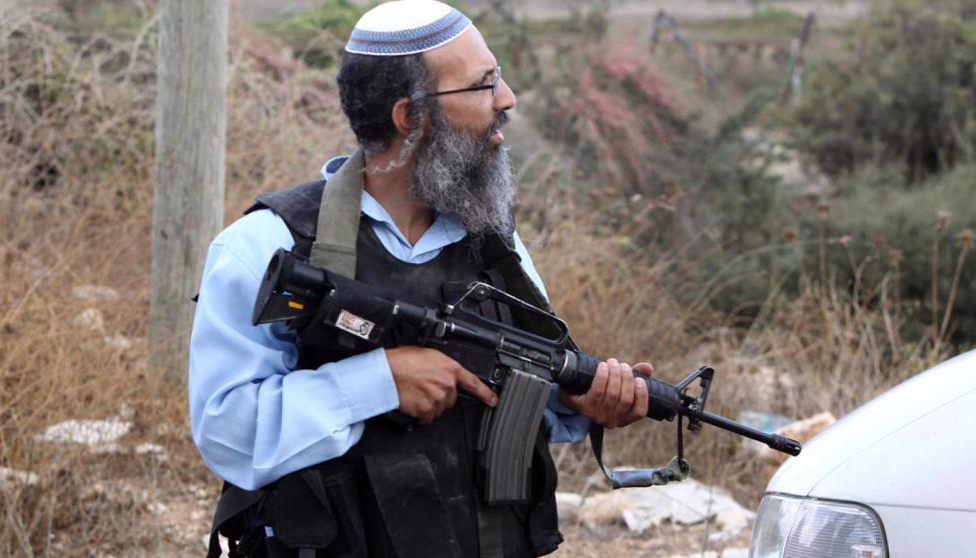
United Nations, August 23 (RHC)-- Members of the United Nations Security Council (UNSC), including Algeria and China, have decried Israeli settler violence against Palestinians in the occupied West Bank that has increased since the start of the war on Gaza.
Algeria’s Permanent Representative to the United Nations, Amir Bendjama, warned of the risk of the war on Gaza spilling over into the occupied West Bank. "Gaza's tragedy may duplicate in the West Bank," he told a UN Security Council session on Palestine on Thursday.
He slammed the Israeli regime for "crushing any hope for an independent Palestinian state" and expanding settlements in violation of international law. "Israeli authorities deny the establishment of the Palestinian state. They annex Palestinian lands. They expand settlement, and they frequently storm al-Aqsa Mosque. They enlarge settler terrorists in the West Bank," the Algerian envoy said.
Bendjama criticized the international community’s response to the crisis in Gaza as inadequate.
China's envoy to the UN, Fu Cong, also criticized Israel's settlement expansion policy and the ongoing strikes on Gaza. “Blind faith in achieving a total victory in Gaza through military means will only result in more civilian casualties."
He called on Israel to abide by its international obligations by opening all border crossings and end strikes to prevent further escalation.
"We urge countries with significant influence to demonstrate a sincere, impartial and responsible attitude in pushing Israel to seize its military operations in Gaza as soon as possible and to stop the killing of civilians," Fu said.
Meanwhile, Russian envoy Dmitry Polyanskiy stressed that “the provocative actions of the Israeli leadership in the occupied Palestinian territory are absolutely unacceptable,” referring to Israeli minister Itamar Ben-Gvir’s intrusion into the al-Aqsa Mosque compound in occupied East al-Quds earlier this month.
He also expressed disappointment over the UNSC’s failure to “unequivocally” demand an immediate ceasefire and ensure that all parties to the conflict comply with that demand”, and slammed Israel for “blocking the work of humanitarians” in the Gaza Strip.
"Israel is now insisting on keeping the idea of a military presence in Gaza, including their control over the crossing with Egypt and the Philadelphia corridor.”
Referring to the resolution adopted by the UNSC in June that was aimed at reaching a comprehensive ceasefire deal in Gaza, Polyanskiy said “our American colleagues are now trying to sell us a new ‘pig in a poke’, modifying the parameters of the deal being discussed in a way that would be suited to Israel.”
“We do know that reformatting the parameters is something that certain countries of the region also vehemently object,” he said, and asked the U.S.: “On whose behalf are you acting, when you are trying to push through that deal, which is fundamentally different from the original one.” "The UNSC never blessed the deal formulated in this way.”
The U.S. and the UK also condemned the growing violence in the West Bank in the UNSC session. But -- at the same time -- both countries are major supporters of the Israeli regime and its genocidal war on Gaza.
More than 700,000 Israelis live in over 279 settlements built since the 1967 Israeli occupation of the West Bank and East al-Quds. While all Israeli settlements are illegal under international law, the occupying regime has stepped up settlement expansion in blatant violation of United Nations Security Council resolutions.
Earlier this week, the Norwegian Refugee Council (NRC) said violence by Israeli settlers “in the northeast of the West Bank caused the largest wave of forcible transfers of Palestinian communities since the weeks following 7 October.”
Allegra Pacheco, chief of party of the NRC-led West Bank Protection Consortium, stressed that the group urges the international community “to intervene with the Israeli authorities and protect these vulnerable communities.”
Israel occupied the West Bank, Gaza Strip and East al-Quds, areas Palestinians want for a future independent state, in a 1967 war.
Last month, the United Nations’ top court ruled that Israel’s presence in the 1967-occupied Palestinian territories is “unlawful” and must end.
“Israel’s continued presence in the occupied Palestinian territory is unlawful”, the International Court of Justice said, adding that the regime “is under an obligation” to end it “as rapidly as possible.”
The 83-page advisory opinion outlined a wide list of policies that it said violated international law, including the building and expansion of Israeli settlements in the West Bank and east al-Quds.
Since the beginning of Israel's genocidal war on the Gaza Strip, violent acts by Israeli settlers in the West Bank have increased dramatically.
Israel launched the war on Gaza on October 7 after the Palestinian resistance movement Hamas waged the surprise Operation Al-Aqsa Storm against the occupying entity in response to the Israeli regime's decades-long campaign of bloodletting and devastation against Palestinians.
The regime’s bloody onslaught on Gaza has so far killed at least 40,265 Palestinians, mostly women and children, and injured 93,144 others. Thousands more are also missing and presumed dead under rubble.

